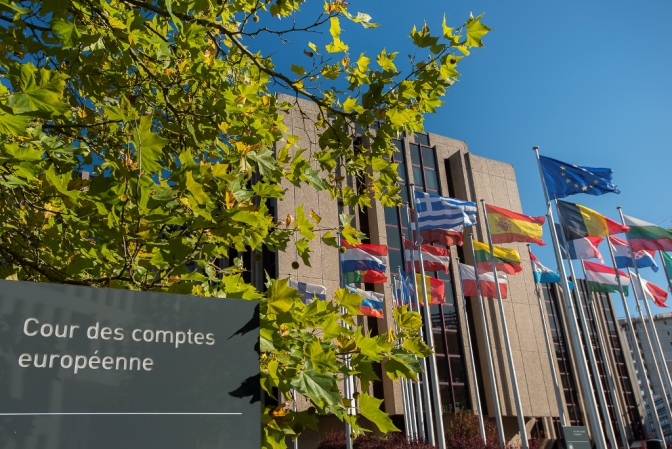EU measures to promote the internalisation of small and medium-sized enterprises lack coherence and visibility, and are not always well coordinated, according to new audit report published on Tuesday by the European Court of Auditors (ECA).
SMEs – businesses which have fewer than 250 employees – are the backbone of the EU economy and make up 99% of all businesses in the EU. Outside the financial sector, they provide two thirds of jobs in business, and generate over half of the EU’s economic production. However, they only account for 30% of EU exports.
“Small businesses are big business for the EU,” said Ivana Maletić, the Croatian ECA member in charge of the report. “By trading across Europe and exporting beyond its borders, they can make an even bigger contribution to the EU’s economy.
“The Commission should make the information on SME internationalisation support more readily available and bring its programmes closer to European SMEs, which are still not aware of many of the existing instruments and projects,” she summarized the conclusions in the report.
Internationalisation is the process by which companies become involved in international markets, primarily through exports. Already in 2008, the Commission adopted the Small Business Act (SBA) in support of SMEs. According to ECA, the act is considered the cornerstone of SME support, aiming to provide coherence among the many EU instruments and actions.
The SBA is based on ten principles, among others to promote entrepreneurship, reduce regulatory burden, increase access to finance and, last but not the least, support to access to market and internationalisation of SMEs.
Strategy for SME internationalisation
In 2011, the European Commission adopted an EU-specific strategy for SME internationalisation, including the Enterprise Europe Network (EEN) initiative, which provides a support network for SMEs with international ambitions, and the smaller initiative StartUp Europe specifically focusing on high-tech start-ups.
The EEN and StartUp Europe are first contact points for European SMEs and start-ups seeking advisory supports and networking for exporting. At the end of 2020, the EEN had over 625 partner organisations, such as regional development agencies, chambers of commerce, or research institutes in 65 countries, grouped into regional consortia.
But the implementation of the strategy remained incomplete, according to ECA. Although the Commission has succeeded in partially carrying out key measures, important activities to make measures more coherent at EU and Member State level have been unsuccessful. In particular, the Commission did not provide an up-to-date inventory of measures to identify gaps, overlaps and synergies.
The EEN had achieved its targets but needed further efforts to improve its visibility, coordination, coverage in non-EU countries, and capacity building to better support SMEs in accessing finance and exploiting the benefits of free trade agreements (FTA). The EEN’s performance varied also between countries with inadequate presence in China.
As for the Startup Europe initiative, the auditors found that it only addressed the needs of start-ups in the short term, as all funded projects ceased at the end of the grant period which threatened their sustainability. Cooperation with other instruments was limited and the initiative sometimes led to start-ups being acquired by big businesses from outside the EU.
Lack of coordination on EU level
EU’s support to SME Internationalisation is a cross-cutting topic and the audit covered several Directorates-General in the Commission, altogether 10 Directorates-General, besides an SME agency (EISMEA), and two European investment instruments (EIB and EIF).
“Cooperation and coordination among Commission services varies,” ECA member Ivana Maletić told The Brussels Times.
“For some areas such as the ones related to the advantages for SMEs from the FTA, coordination and cooperation proved to be sound; however, the coordination of the different EU networks in support of SME internationalisation and financial sustainability showed clear room for improvement.”
The implementation of measures under the SBA principles is monitored annually by the Commission but the SBA as such was outside the scope of the audit.
“The report was focussed on the EU instruments in support to SME internationalisation, both within and beyond the EU, that mainly concerns two of the principles of the SBA,” she explained, “but other key principles of the SBA were also relevant for the audit as they are key for SME internationalisation.”
For example, conclusions and recommendations on the SBA principle concerning Access to Finance are provided in the report, in particular regarding the need of the Commission and the EIB group to provide further training and support to the EEN in this area, in order to inform the SMEs about EU’s financial instruments for them.
On a positive note, the Commission has accepted all the recommendations in the report. No SME is “born global” but, depending on the demand for innovative products and the right business support, can get access to international markets and relatively rapidly sell its products in these markets without first having to grow domestically or to establish subsidiaries in other countries.
M. Apelblat
The Brussels Times

